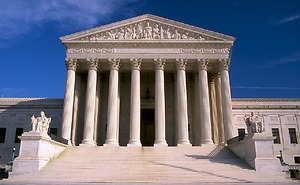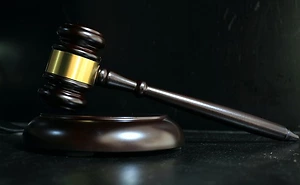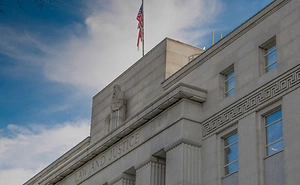Bottom line: As of Tuesday night, the FTC’s non-compete rule has been set aside, cannot be enforced, and will not become effective on September 4, 2024.
As an update to our prior alert regarding the Federal Trade Commission’s attempt to ban non-competes (Employers in Limbo After Ruling on FTC’s Non-Compete Ban), on August 20, 2024, Judge Ada Brown of the U.S. District Court for the North District of Texas entered a final ruling on the merits setting aside the FTC’s non-compete rule. As predicted, Judge Brown followed the analysis in her prior ruling and held that (1) the FTC ...
Recent headlines implying a general a stay of the Federal Trade Commission’s non-compete rule are misleading. Here’s what employers need to know.
The Federal Trade Commission voted 3-2 today to approve a final rule banning non-compete agreements nationwide. The rule is slated to go into effect 120 days after its published in the Federal Register.
Many have called into question whether the agency has the authority to unilaterally ban non-compete agreements – including two dissenting commissioners from today’s vote. We anticipate that the U.S. Chamber of Commerce or a similar entity will seek a temporary restraining order and emergency injunction in the next few days. After that, a wave of lawsuits challenging the rule is ...
This article was first published on Reuters Legal News and Westlaw Today on November 7, 2023.
(November 7, 2023) - James P. McLoughlin Jr., Mary Katherine Stukes and Pierce Werner of Moore & Van Allen discuss the arguments, background and questions surrounding the Supreme Court's upcoming review of the Chevron doctrine.
On May 1, 2023, the Supreme Court granted certiorari in Loper Bright Enterprises v. Raimondo, Case No. 21-5166. The Supreme Court will decide "[w]hether the Court should overrule Chevron or at least clarify that statutory silence concerning ...
In its 2023 term the U.S. Supreme Court will consider the case of Loper Bright Enterprises v. Raimondo, No. 22-451, in which the appellants have asked the Supreme Court to reverse decision in Chevron U.S.A., Inc. v. Natural Resources Defense Council, Inc., 467 U.S. 837 (1984), in which the Supreme Court affirmed the principle that the federal courts should defer authority of a federal agency in the interpretation of a statute where the development of regulations pursuant to a statute on a number of grounds, including the delegation of authority by Congress or the agency’s experience ...
Moore & Van Allen (MVA) Litigation Member Tanisha Palvia discuss the Supreme Court decision on the intent standard for False Claims Act violations and explore its implications in their article titled, “SCOTUS clarifies intent requirement for False Claims Act cases” which was published by Westlaw and Reuters on July 6.
Related Materials
SCOTUS clarifies intent requirement for False Claims Act cases
Moore & Van Allen (MVA) Employment & Labor Associate Kyle Jacob and Litigation Member Jim McLoughlin’s article titled, “Supreme Court dramatically expands scope of state court jurisdiction over businesses” was published by Westlaw on July 25.
The article
A new 5-4 decision from the U.S. Supreme Court holding registration to do business in a state is sufficient for personal jurisdiction even if the subject of the lawsuit has no connection to the state will have far reaching effects on the ability of consumers, employees, and others to sue businesses outside of their home ...
Moore & Van Allen (MVA) Members John Fagg and Jim McLoughlin, both Lawdragon 500 Leading Litigators and Chambers-ranked practitioners, recently provided commentary to Lawdragon regarding the White Collar Enforcement Under the Biden Administration. They provided their take on the Administration’s enforcement efforts so far, and what might be coming down the pipeline as the Biden Administration follows through on campaign promises to pursue more white collar criminal cases. Federal prosecutors have been pursuing COVID-related frauds, giving ...
As home to the second largest banking center in the country, North Carolina has stepped onto the leading edge of innovation in the FinTech and InsurTech arenas. Late last year, Governor Cooper signed into law H624, the North Carolina Regulatory Sandbox Act of 2021 (“Sandbox Act”), which established what is known as a “regulatory sandbox” program to encourage innovation in the development of FinTech and InsurTech products to be offered to consumers. The regulatory sandbox program provides a modified regulatory environment in which companies can have licensing or other ...
This week Chief Justice Paul Newby announced that Grant Buckner will serve as the 17th Clerk of Court for the N.C. Supreme Court. Buckner will assume the position next month when Amy Funderburk departs after serving four years in the role. This office will be a natural fit for Buckner, who has served the Supreme Court in various capacities since 2014. He is currently lead counsel for the Court’s Office of Administrative Counsel—an office he helped to establish. Among other things, Buckner has provided legal counsel to the Supreme Court, supported the Chief Justice’s Rules Advisory Commission, and assisted the Chief Justice in responding to the COVID-19 pandemic.
About MVA Litigation
Companies are operating in an increasingly globalized and regulated business environment, facing ever-changing and complicated litigation and regulatory challenges. We provide cutting-edge information regarding developments in federal, North Carolina State, and international litigation, as well as in arbitration, regulatory enforcement, and related business practices.




